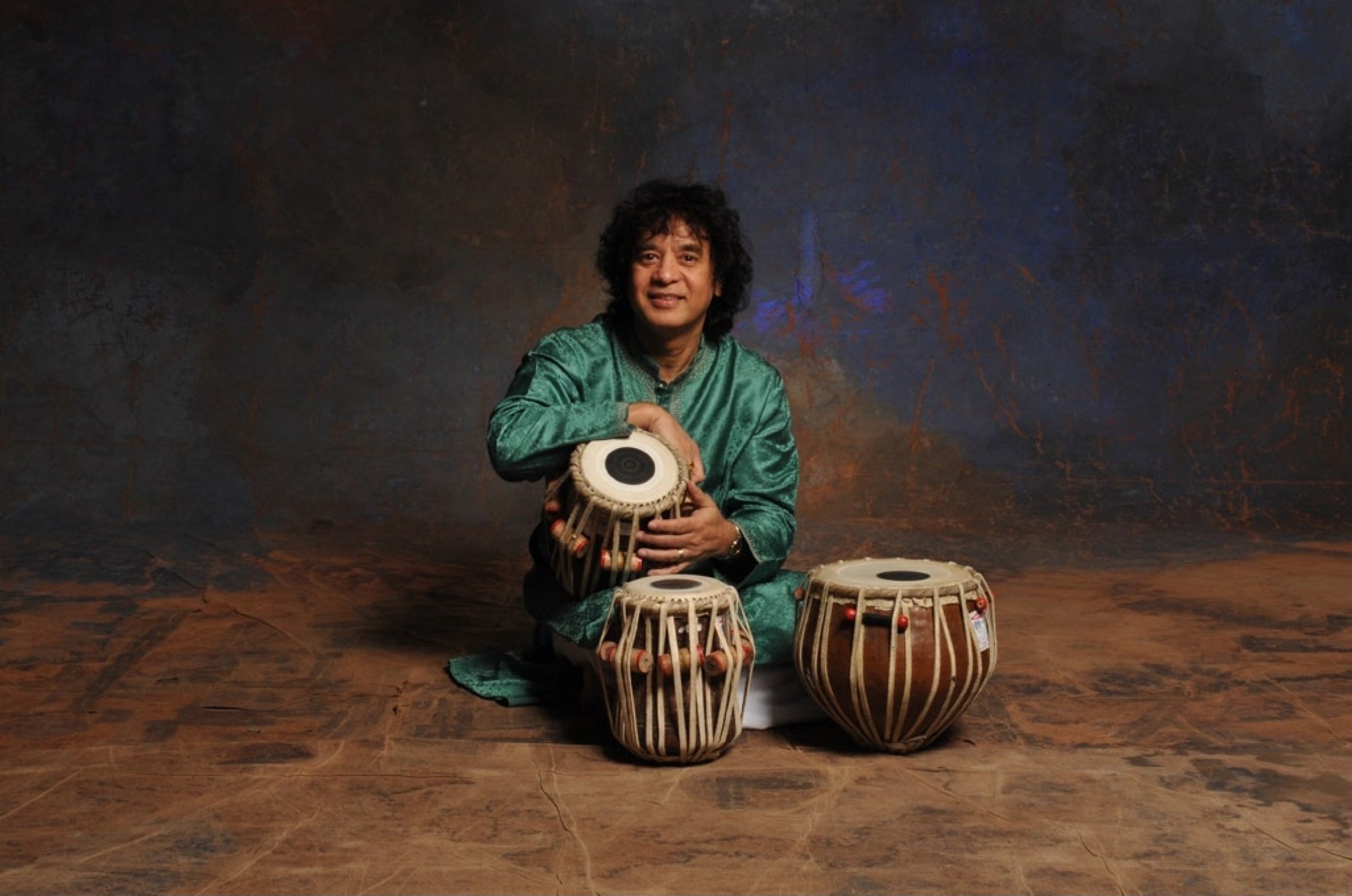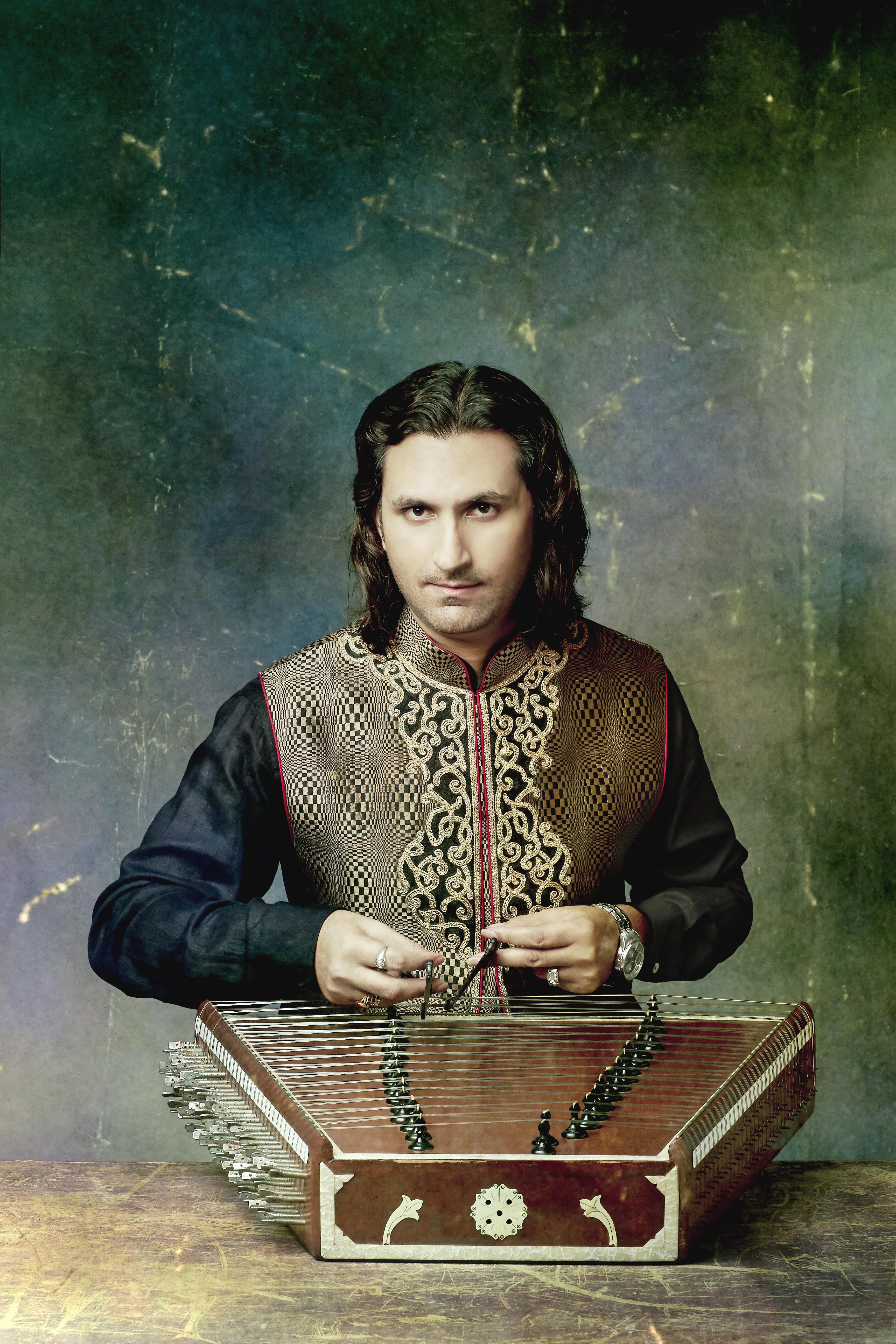 There is one thing Pres. Donald Trump’s travel ban can’t do: stop two musicians from traveling around the United States and sharing their improvised iterations of Indian classical music with cultural aficionados and novices alike. Tabla maestro Zakir Hussain and Indian classical music artist Rahul Sharma will make their way to Southern California with the duo set to perform at UCLA’s Royce Hall on April 29. There are enough music lovers in Orange County and Los Angeles metro familiar with Hussain’s, so a performance here is par for the course.
There is one thing Pres. Donald Trump’s travel ban can’t do: stop two musicians from traveling around the United States and sharing their improvised iterations of Indian classical music with cultural aficionados and novices alike. Tabla maestro Zakir Hussain and Indian classical music artist Rahul Sharma will make their way to Southern California with the duo set to perform at UCLA’s Royce Hall on April 29. There are enough music lovers in Orange County and Los Angeles metro familiar with Hussain’s, so a performance here is par for the course.
Other tour stops present a bit of a culture shock to both artist and area locals serve as a reverse culture shock, particularly for someone like Sharma, whose first introduction to the United States on this tour was a small Midwestern town.
Small town stops in Iowa, Wisconsin and even California – yes, Santa Cruz qualifies as a small town – are actually quite fun for Hussain. The excitement of presenting his music to a newer – and less, umm, “traditional” – audience was quite evident in his chat with the Weekly. But we’ll get to this excitement shortly.
For now let’s focus on Hussain’s only Southern California stop. The Hussain-Sharma show scheduled for April 29 at UCLA happens to fall on the birth anniversary of Hussain’s father. The senior Hussain, who would have been 98 this year, regularly hung out with the legendary Ravi Shankar during their many jaunts here back in the day. This month’s show at UCLA’s Center for the Art of Performance will be dedicated to Hussain’s father, with the maestro expected to perform a 98-beat segment involving multiple percussions.
Hussain hopes the UCLA show will also double as a birthday bash for his father while also taking the audience on a musical journey.
“What’s going to happen with Rahul and me is the audiences will bring their information of what we are representing, but with the sensibilities they have seen over the years in California, where the world of music opened up [with jazz and rock artists working with Indian musicians]. All of those elements are there and familiar for audiences here,” Hussain said.
“What I’m looking at is for them being able to ride with us through this experience of the past, present and future of Indian traditional music and how it’s influenced the Western scene – and in reverse, how the Western influenced has enhanced its ability to be more of a multi-dimensional form of music,” Hussain continued.
Different sets of dimensions are altered whenever Hussain performs in Small Town USA. Performing outside of Los Angeles, New York, San Francisco or Washington, D.C. gives Hussain a chance to break-in his music into new environments, basically opening up a whole new sonic world. His music is something fresh and positively different for his audiences in some of the quieter corners of the United States.
 So how does he explain the tabla – and Indian Classical, for that matter – to his newly or soon-to-be enlightened audiences?
So how does he explain the tabla – and Indian Classical, for that matter – to his newly or soon-to-be enlightened audiences?
“When I’m playing in places like L.A. or New York, it is easy because we’ve been there a zillion times,” Hussain said. “When you go to places like Louisville, Kentucky, or Kansas or Ames, it’s more exciting. You get a change to break your music to a place where you haven’t had a chance to share. The excitement of being able to open this different sonic world for an audience and have them experience this tradition, this way of musicians interacting and improvising … is refreshing for us.”
He reminds us Indian Classical music is a 2,000-year tradition, but all he can do is express its rich history through his interpretation. The music as a whole has survived the way it was conceived, but, as with any lasting art form, Indian Classical maintains allows for a certain amount of freshness, improvisation and introduction of other musical influences.
The two instruments to be featured on Hussain’s current tour – santoor and tabla – are more recent entries into the art form, according to the maestro. Both instruments – which were introduced into the genre roughly 100 and 300 years ago, respectively – maintain the music genre’s traditional concepts but also serve as its future.
Performing alongside Sharma will be an interesting experience for Hussain; the latter performed with the former’s father for nearly 40 years, so there is a history between them.
Sharma, according to Hussain, is among India’s new breed of musicians: trained in classical and a large library of contemporary tunes, such as western classical, jazz and Bollywood.
“They are used to working in a harmonic world,” Hussain said. “Those sensibilities allow them to be able to explore the tradition of music a little bit differently.”
Such sensibilities presents an interesting challenge for Hussain, a classically trained maestro who will be exploring new terrain with his on-stage partner.
The exploration can be witnessed inside UCLA’s Royce Hall at 8 p.m. on April 29. Tickets range from $29 to $59. Visit http://cap.ucla.edu/calendar/details/zakir_hussain_2017 for more information on tickets and venue.

